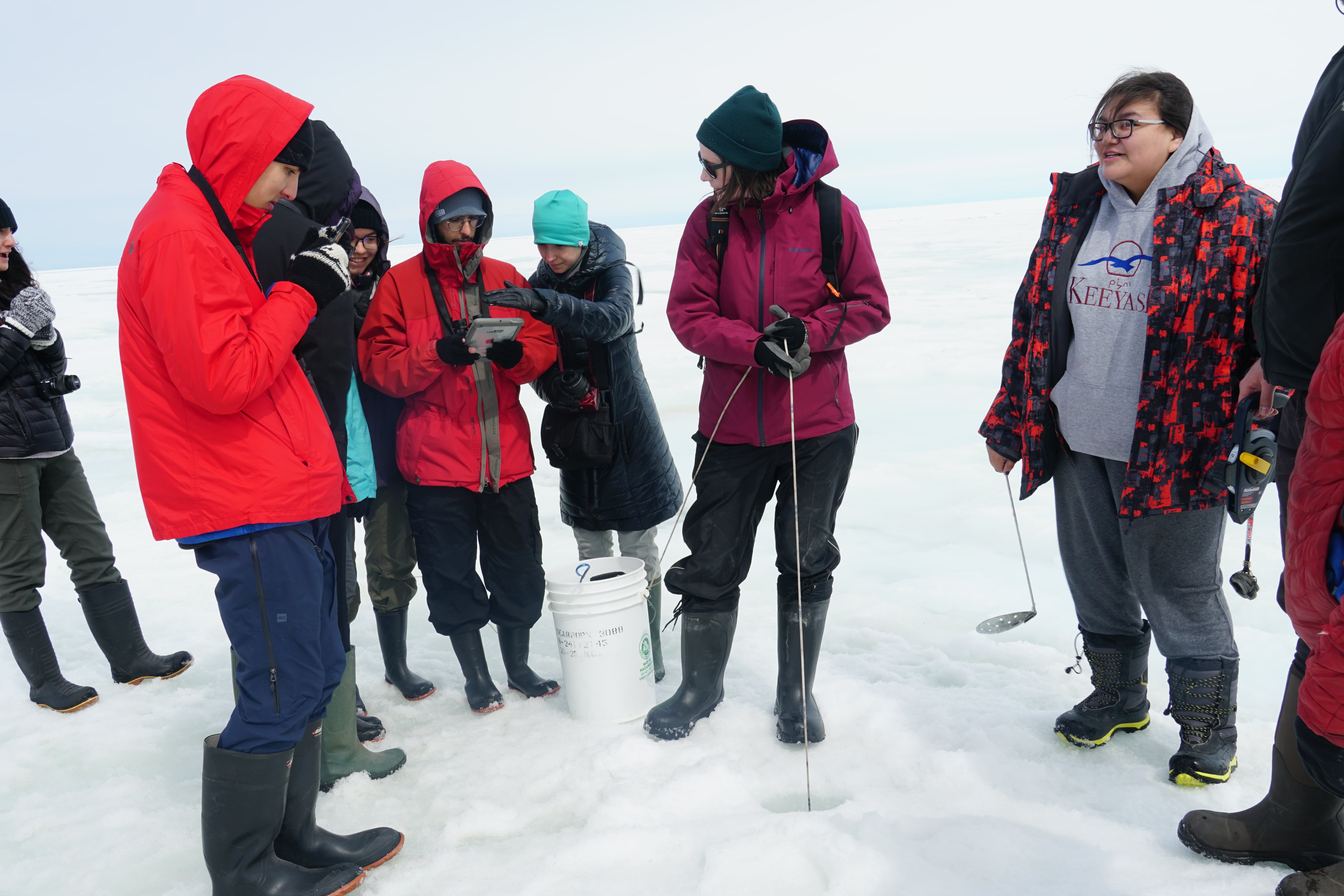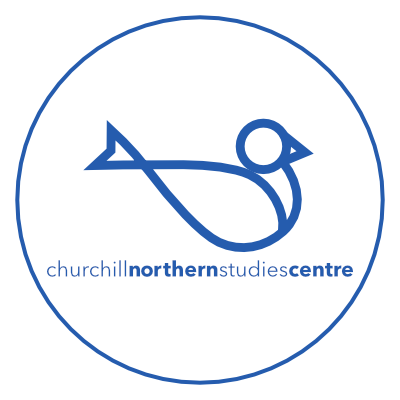Churchill Northern Studies Centre (CNSC) hosts several unique educational initiatives, from university field courses to learning vacations. In this blog post, I highlight one in particular: the Current Topics in Science high school course. This course is part of the 4+1 program developed by the Frontier School Division. This program is a modified semester layout that enables students from smaller, rural schools to experience electives that may not be otherwise available. It also allows the schools themselves to offer a suite of different electives and provide students with unique life experiences. This is the third year CNSC has facilitated this course in partnership with the Duke of Marlborough school here in Churchill.
This June, seven students participated in the course. Through experiential learning in the classroom, laboratory, and field, students gained insight into all aspects of scientific research, from project design to data collection. Students were also able to spend time with world-renowned scientists and experts in their field. They spent several days exploring the sea ice of Hudson Bay with Dr. LeeAnn Fishback, environmental geochemist and science coordinator at CNSC. For many students, it was their first time ever walking on sea ice. Dr. Bruce Beehler, an ornithologist from the Smithsonian Institution’s National Museum of Natural History in Washington, D.C., took the students birding around the Centre. Dr. Graham Young and Mr. Michael Cuggy, geologists from the Manitoba Museum and University of Saskatchewan, developed an interactive fossil field trip and classroom activity with the students. Dr. Doug Clark, a professor at the University of Saskatchewan, spent several days teaching the students about bear/human dynamics using remote wildlife cameras. Students set up cameras around Churchill, and we were beyond excited to see they were able to capture a large male black bear on camera! Other activities throughout the month included: constructing freshwater aquariums, participating in citizen science, collecting samples and drawing biological sketches, practicing microscopy, preforming dissections, and more.
This coming January, CNSC hopes to be able to host an additional 4+1 course for the winter semester. This course would specifically focus on issues surrounding climate change, both at a local and global scale. Students will be able to engage with researchers currently studying this ever-changing environment. By facilitating this course during the winter, we can develop an entirely new set of science activities and conduct field work in a different season. We are presently preparing this course with the local high school science teacher, Marcel Gluchowski.

The Current Topics in Science course is an example of the union of research and education at field stations. As researchers, volunteers, and staff of CNSC, we greatly appreciate the opportunity to connect with local youth. Many of us are from outside of Churchill and we are grateful to be able to share knowledge and learn from community-members of all ages. By doing so, we aim to ensure our perspective and work remains community focused.
Biological field stations, like the CNSC, provide resources for education, training, mentorship, and practical research experience to community members, with a focus on the development of the next generation of researchers. The hands-on contribution to environmental education is of tremendous value and cannot be approached in the same way in a traditional classroom setting. Students learn directly from real scientists working in the field and encourages students to seek answers to their own questions, helping move them along the continuum from passive learners to active scientists. It also allows visiting researchers to listen and learn from the community and be exposed to local perspectives. Being a leader in subarctic research and education, CNSC provides a perfect setting for this co-learning experience to take place. We are incredibly grateful to participate in this partnership and look forward to hosting 4+1 programs in the future.
